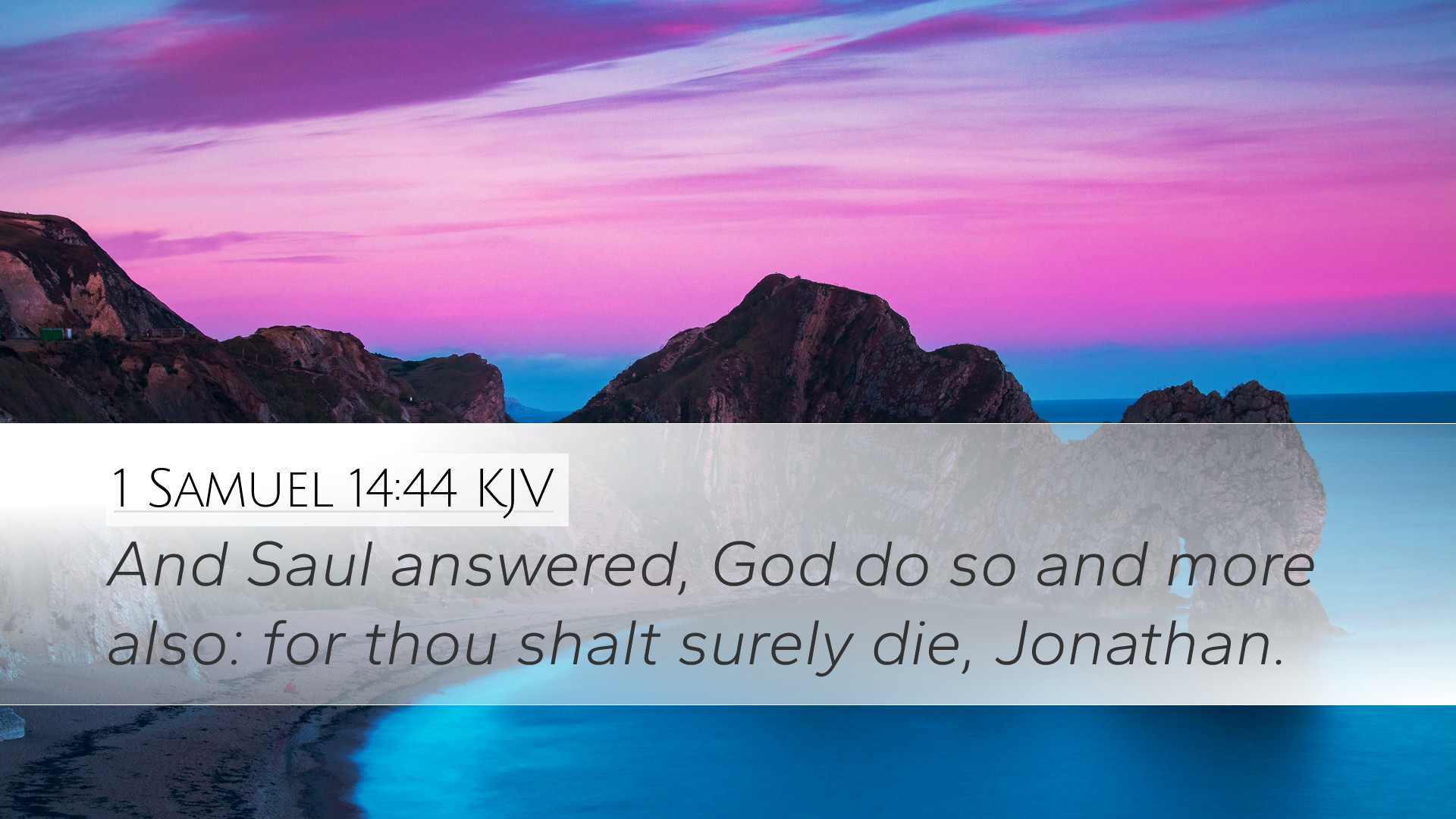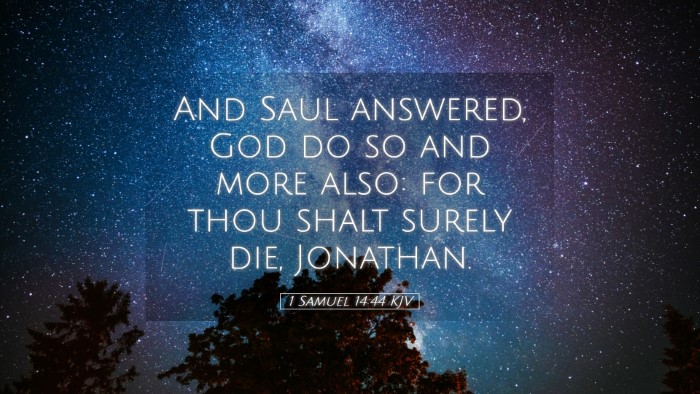Commentary on 1 Samuel 14:44
Verse: "And Saul answered, God do so and more also: for thou shalt surely die, Jonathan." (1 Samuel 14:44, KJV)
Introduction
The narrative of 1 Samuel 14:44 presents a critical moment in the life of King Saul and his son, Jonathan. This passage highlights the complexities of Saul’s character as a leader and the tragic consequences of rash decisions within the context of divine sovereignty and human agency.
Context of the Verse
This verse comes after a pivotal battle where Jonathan, unbeknownst to his father, took an initiative that led to a significant victory over the Philistines. Saul, having made a foolish oath without recognizing the implications, unwittingly places his son in mortal danger with his words. The implications of leadership, obedience, and the dynamics within a royal family are essential themes to explore in this passage.
The Leadership of Saul
Matthew Henry observes that Saul’s leadership is characterized by haste and a lack of divine guidance. His willingness to pronounce a death sentence upon Jonathan reflects his deep-seated insecurities and inability to recognize the consequences of his oaths.
Albert Barnes emphasizes that Saul's reaction illustrates a king under pressure, grappling with his authority and the expectations of his position. This decision reveals Saul's flawed understanding of justice and mercy, showing how the burdens of leadership can lead to tragic outcomes.
Jonathan’s Role
Jonathan emerges as a valiant figure, a stark contrast to his father's impulsiveness. Despite his actions being motivated by faith and courage, he becomes the target of Saul's misguided decree. Adam Clarke points out that Jonathan’s bravery resulted in a victory for Israel, showcasing the paradox that sometimes those who act faithfully can incur wrath through the folly of others.
This dynamic between Jonathan and Saul invites deeper theological reflection on parental authority and the consequences of decisions made in haste without seeking God's will.
Theological Themes
Divine Sovereignty and Human Agency
The tension between divine sovereignty and human free will is palpable in this passage. Saul’s curse, intended to establish order and command respect, instead acts as a catalyst for further conflict. Barnes suggests that God’s providence intervenes in human affairs, even within the flawed decisions of kings, ultimately leading toward His divine purposes.
The Nature of Oaths
The biblical view of oaths is significant here. Henry points out that Saul's oath was rash and lacked foresight. This reveals a critical truth about the nature of promises made under duress or in a moment of passion—such commitments can lead to moral dilemmas when they conflict with familial love or justice.
Key Insights for Pastoral Ministry
For pastors and ministers, the passage serves as a cautionary tale regarding commitments to God and others. Reflecting on Saul’s impulsive decision can inform how leaders approach their responsibilities and articulate their expectations to their congregants.
- The Importance of Wisdom: Seek circumspection in leadership decisions.
- Prioritizing Relationships: Recognize the human element in decision-making.
- Seeking Divine Guidance: Pray for discernment before making declarations.
Conclusion
1 Samuel 14:44 encapsulates the complexities of leadership, familial bonds, and the quest for divine alignment in our decisions. As readers delve into this text, they are encouraged to reflect on the intersections between authority, responsibility, and grace. Ultimately, this passage reminds us of the critical importance of aligning our words and actions with God’s truth, acknowledging His sovereignty in our life's narratives.


